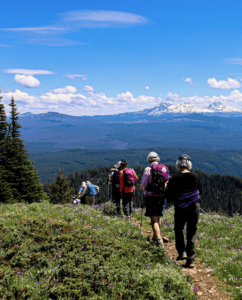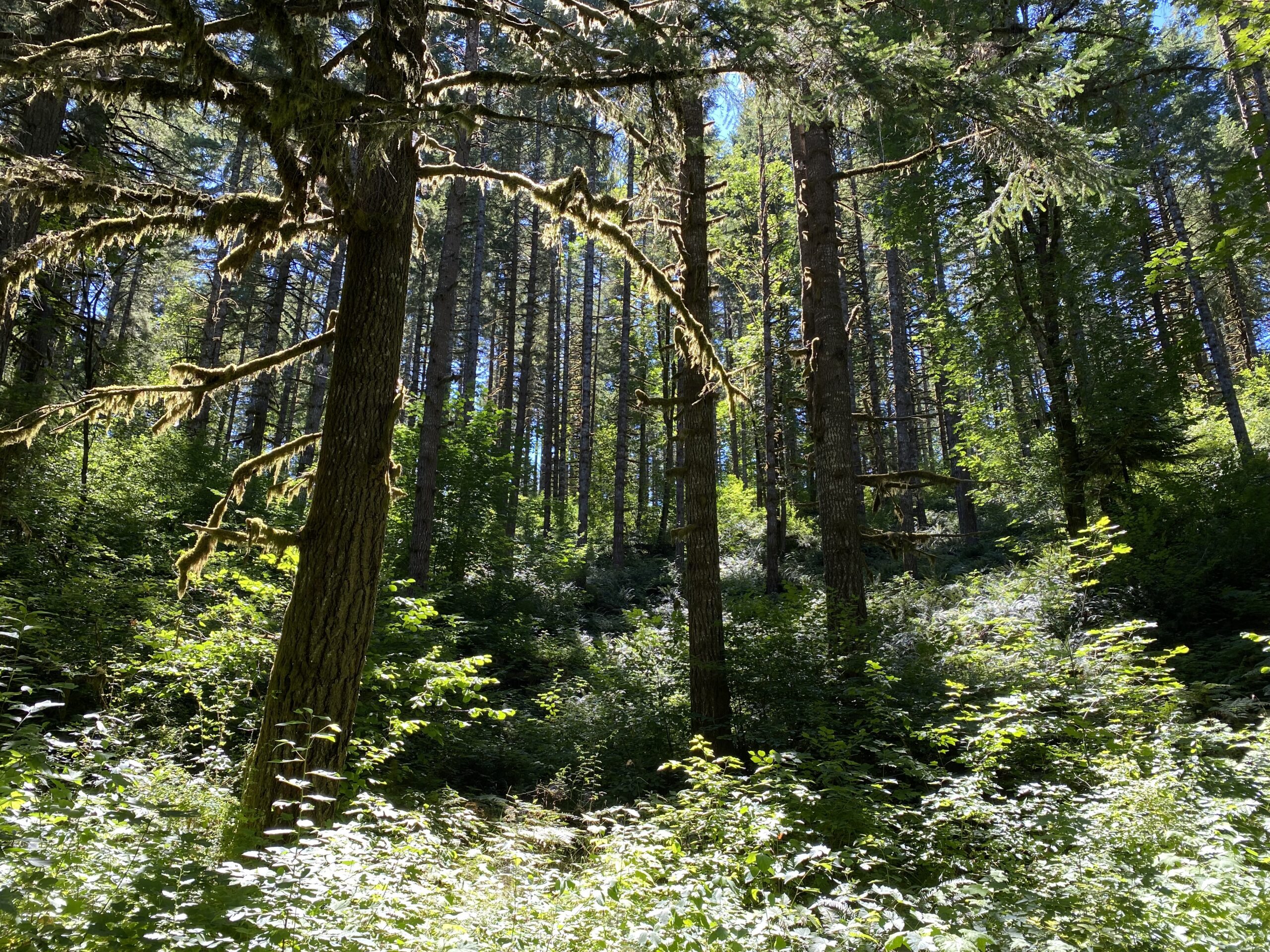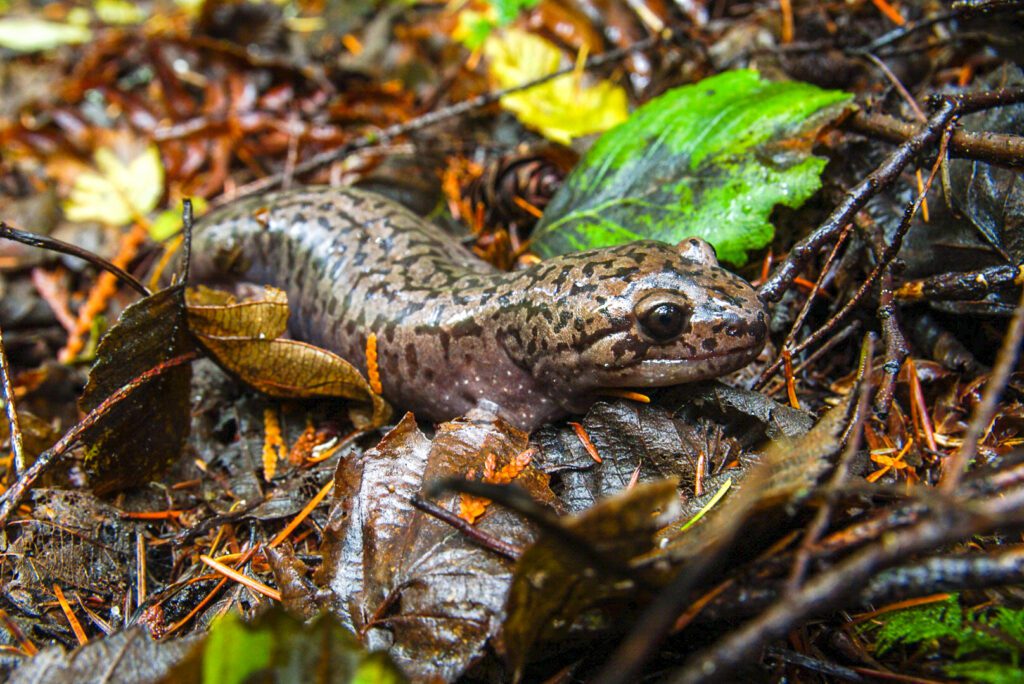Feds failed to consider harm to ecosystems and failed to follow required environmental review processes
| Contact: Peter Jensen, Cascadia Wildlands, peter@cascwild.org John Persell, Oregon Wild, jp@oregonwild.org Oliver Stiefel, Crag Law Center, oliver@crag.org |
Eugene, OR — Conservation groups secured a victory as a federal court rejected the Bureau of Land Management’s (BLM) controversial Siuslaw HLB (“Harvest Land Base”) Project. The court held the agency’s proposed multi-decadal and aggressive logging plan near several communities west of Eugene, violated critical environmental review requirements.
Cascadia Wildlands and Oregon Wild, with attorneys at Crag Law Center, brought suit arguing that the agency ignored the project’s potential impacts on soils, drinking water, invasive weeds, and threatened wildlife. The organizations also raised concerns about the cumulative effects of the Siuslaw HLB Project and the overlapping N126 Project, another Bureau of Land Management logging proposal a different judge ruled unlawful in late March. Federal law requires the agency to weigh the negative effects of logging against any claimed benefits from timber production — a step the Bureau of Land Management neglected.
“The Bureau of Land Management routinely disregards the serious risks that many of their logging projects impose,” said Nick Cady with Cascadia Wildlands. “We lose valuable, rare ecosystems and with it, wildfire resilience and drinking water quality, every time these mature forests are irresponsibly logged.”
The Court ruled in favor of the conservation groups, finding that the Bureau of Land Management did not take the legally required “hard look” at the environmental impacts. Further, in his Opinion, Judge Kasubhai concluded that “This is not a case where the Court was unable to determine whether there may be significant effects. Rather, the Court has explicitly found […] that substantial questions exist over whether the Siuslaw Plan may have significant impacts. Under the clear rule set forth in the case law cited above, an EIS [environmental impact statement] must be prepared in light of that finding.” Accordingly, BLM’s choice not to take a hard look at the environmental consequences of its decision and prepare an environmental impact statement violated federal law.
“The Judge offered a strong rebuke of the agency’s shell game analysis, wherein the BLM refused to analyze impacts to key issues like sensitive soils, imperiled species, and invasive species, claiming that such impacts were either already addressed or would be in the future. But in truth, the agency’s approach meant that these critical issues would never be addressed in the manner that the law requires,” said Oliver Stiefel, Senior Staff Attorney, Crag Law Center.
The Siuslaw HLB Project sought to log 13,225 acres of public forests in the Coast Range foothills. The Bureau of Land Management’s own planning documents acknowledged that the project would increase the spread of invasive weeds, decrease slope stability and destroy soil health, and risked serious harm to numerous protected species (special status, bureau sensitive, or endangered), decrease fire resilience, and contaminate and degrade drinking water contamination. Notwithstanding, the agency dismissed these risks as insignificant.
“Whether it’s due to poor analysis or attempts to log old-growth trees for profit, the courts continue to reject the BLM’s unlawful logging projects,” said John Persell of Oregon Wild. “Clearcutting public lands, destroying wildlife habitat, endangering local communities — this is exactly the type of logging President Trump and his allies are now pushing on a larger scale. It’s not legal, it’s not what the public wants, and we’re going to keep fighting it.”
Local residents have also voiced strong opposition, citing risks such as drinking water contamination, increased wildfire hazards, soil erosion, invasive species introduction, and the destruction of wildlife habitat and recreational opportunities. The agency was unfazed by these concerns. It is encouraging to see federal courts in Oregon recognizing the problems associated with poor environmental analysis and serious risks those shortfalls pose to our forests.
The organizations are represented by attorneys from the Crag Law Center and Cascadia Wildlands.
###
Eugene-based Cascadia Wildlands defends and restores Cascadia’s wild ecosystems in the forests, in the courts, and in the streets. The organization envisions vast old-growth forests, rivers full of wild salmon, wolves howling in the backcountry, a stable climate, and vibrant communities sustained by the unique landscapes of the Cascadia bioregion.
Oregon Wild’s mission is to protect and restore Oregon’s wildlands, wildlife, and water as an enduring legacy. Oregon Wild is celebrating its 50th Anniversary this year.
Crag Law Center is a nonprofit environmental law center based in Portland, Oregon that supports community efforts to protect and sustain the Pacific Northwest’s natural legacy. Implementing a unique model of legal aid for the environment, Crag balances the scales of justice by offering free and low-cost legal services to people who are working on the ground to protect our environment, climate and communities.





